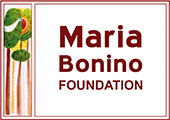A LIFE FOR OTHERS
Maria was a paediatrician and her professional, or rather vocational, breakthrough came just after graduating when, together with a group of boy scouts, she spent some time in some missions in Kenya. Since then she has always worked alternating between Italy and several African countries (Kenya, Tanzania, Burkina Faso, Uganda, Angola).
From her first stay in Tanzania she wrote:
“I am really happy, beyond all rhetoric. Here I was able to experience the meaning and taste of my work. The idea of returning to Italy does not appeal to me at all. What I would like is to stay here. I like this kind of life and work and, despite the inevitable difficulties, I feel that my days have a purpose here”.
PASSION AND GENEROSITY
Maria loved her work very much, but she also loved the things in life: she loved them and lived them with a freedom that her family and friends always envied. Whenever she could, she would travel, go to the mountains, or skiing and in the trunk she carried to Africa there was always room for music collections and books of all kinds.
Those who worked alongside her tell of how she worked long hours with a calm and generous approach to everyone, ready to give of herself with great determination. Everyone remembers how she excelled in her work and how many sleepless nights she spent watching over children who were not her own. We know of her rebellions in the face of children’s suffering, their agonised cries, the pain of their mothers and fathers.
And we know how, in the face of all this suffering, she never stopped fighting, but refused the idea of being a heroic ‘Don Quixote’.
THE COMFORT OF FAITH
On her first trip to work in Tanzania, Maria had left us a note, the front of which read: “I fear that the day will end before I know it, and the hour of offering will pass away“.
Maria lived up to her ideal until 24th March 2005, when the Marburg virus infection, about which, unheard, she had been warning the Health Authorities for some time, took her and hundreds of her children lives away.
We are left with infinite sorrow and the equally great comfort of the faith that Maria discreetly and silently lived and to which, as was her style, she left us testimony in a few lines written just the week before she died:
“I have a fever and I feel all broken. Let’s hope it’s malaria. And if not…I’m sorry to die, I’m sorry for myself, for the pain of my mother, of Cri, of Paolo, of my nephews and nieces and my brothers-in-law, of the people who love me and whom I love.
I have repeated many times over the years that life is the realisation of the dream of one’s youth, and for most part it has been the case for me and I thank the Lord for it. I’m certainly no match for Dr Matthew*, but if my death were the last, I wouldn’t mind dying that much”.
* Dr Matthew, director of Lacor Hospital in Uganda, sacrificed his life in 2000 in containing a terrible Ebola epidemic.
BIOGRAPHY
Maria Bonino was born in Biella on 9th December 1953. She obtained her high school qualification in Classical Studies in 1972 and her honours degree in Medicine and Surgery from the University of Turin in 1978.
In the autumn of 1980 she began to attend training courses run by Cuamm Doctors with Africa in Padua, and in July of the following year she left for the Consolata Hospital in Ikonda, Tanzania, where she was in charge of the paediatrics department, the rehabilitation unit for malnourished children and the MCH – Maternal and Child Care – territorial service.
This was the period when she developed a preferential relationship for malnourished children
In February 1984 Maria graduated in Tropical Medicine with distinction after attending a course in tropical medicine at the Institut de Medicine Tropicale Prince Leopold in Antwerp, Belgium.
From February 1986 to July 1988, she was in charge of Cuamm paediatrics department and the malnourished children’s unit at the Centre Hospitalier Régional in Tenkodogo, Burkina Faso. Back in Italy, she worked as an assistant paediatrician at the Moncalieri Hospital until January 1989 and later as an assistant and, subsequently, as assistant head physician at the Paediatrics – Neonatology Unit of the Valle d’Aosta Regional Hospital.
Between 1992 and 2003 Maria carried out assignments in various African countries as part of international cooperation programmes. She was in charge of the paediatrics department at the Regional Hospital of Iringa, in Tanzania; coordinator of territorial services in Arua, Uganda, and head of the paediatrics department at the St. Mary Hospital Lacor in Gulu, also in Uganda. In March 2003, with a Cuamm project, she left for Uige in Angola to work in the paediatrics department of the local provincial hospital.
Since October 2004, she has been reporting suspicious deaths from haemorrhagic fever, but she has never received a response to the investigations carried out and sent to the Ministry of Health technicians in the capital Luanda. In February 2005, there was a resurgence of cases of haemorrhagic fever, all of which were fatal. Again, Maria had no support from the local authorities until the death of a nurse, the first in a long list that would also involve her.
On 16th March Maria complained of early symptoms and on 20th March she was flown to Luanda and placed in isolation at a clinic in the capital. She passed away at 6.30 am on 24th March 2005.
On 14th December 2006 she was awarded the Gold Medal of Merit in Public Health in memory of her life at the Istituto Superiore di Sanità in Rome.
She rests in the land of Africa by her express will.
